Making Sustainability Less Beige: A Conversation With Goldune Founder, Azora Zoe
LAST UPDATED March 14, 2021
When browsing the websites and stores of brands that market themselves as sustainable, one thing is often evident. The sustainable retail space has a real love affair with beige.
Sustainable brands are often typecast by neutral color palettes, natural woven fabrics, and a distinct minimalist aesthetic. But this beige-ness applies equally to representation inside the green movement, with that singular look often featuring models that are young, lithe, cis-gendered women who very likely are also white.
Activists continue to stress the inherent interconnectedness between environmental and racial justice, shining a light on the need for all companies to examine representation and inequality within their ranks — sustainable brands included.
This desire to make sustainability less beige is what inspired Azora Zoe to start Goldune in October 2020. Goldune is an e-commerce marketplace curating sustainable personal care, home, and lifestyle goods with a more diverse and inclusive feel — think less “granola” than the standard earth-friendly product offerings.
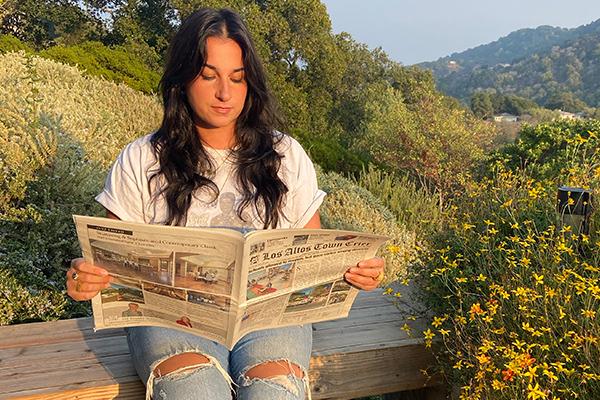
Image Credit: Goldune
Brands like Girlfriend Collective and TomboyX are already pushing the boundaries of what a sustainable label looks like. Both feature models of all colors, sizes, identities, and abilities in their marketing and the collections they create.
And this is what we often imagine inclusivity to look like; representation through models, broad size ranges, adaptable clothing, and the like. But Goldune, who currently features zero models on their site, still manages to embrace inclusivity both meaningfully and creatively.
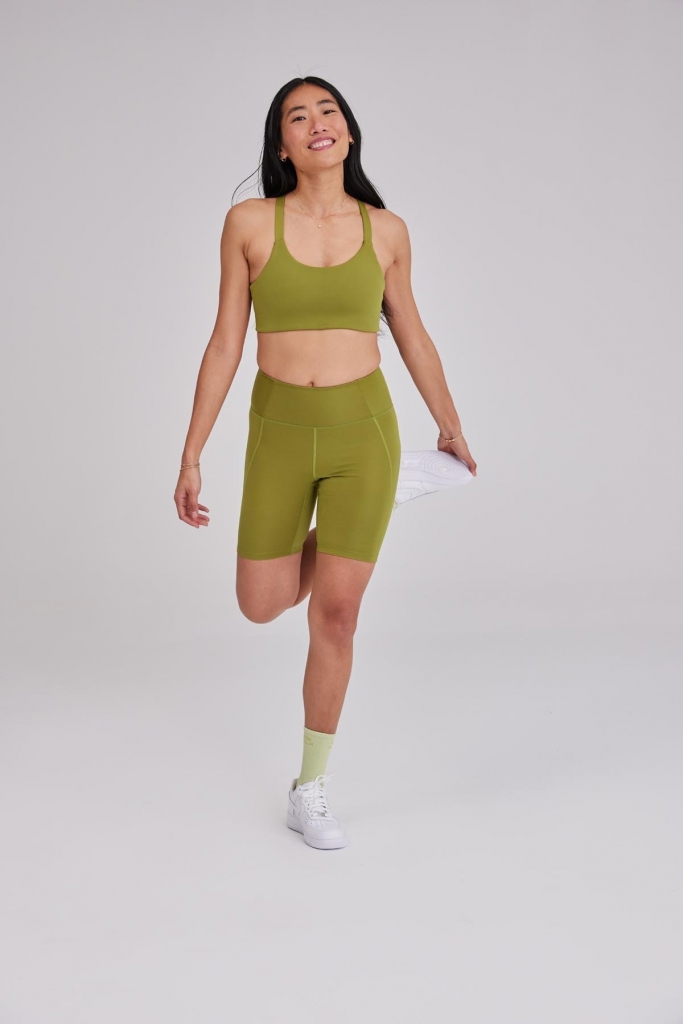
recycled materials. Image Credit: Girlfriend Collective
Amidst a career in the content/commerce space, Zoe started her sustainability journey like most ordinary people do — educating herself while buying and testing new eco swaps in her own home. It started with clean beauty, which got her interested in environmentally friendlier packaging options. She then fell down the proverbial rabbit hole, finding herself researching better alternatives for every aspect of her home, from the kitchen to the medicine cabinet.
“My co-workers, my friends were really into it too,” Zoe recalled, “I started a mini newsletter where I was trialing and reviewing products, and a Finsta where we all comment and post the things that we liked, and things we didn’t like, and that were working for us. And there was a lot of interest in the community, there.”
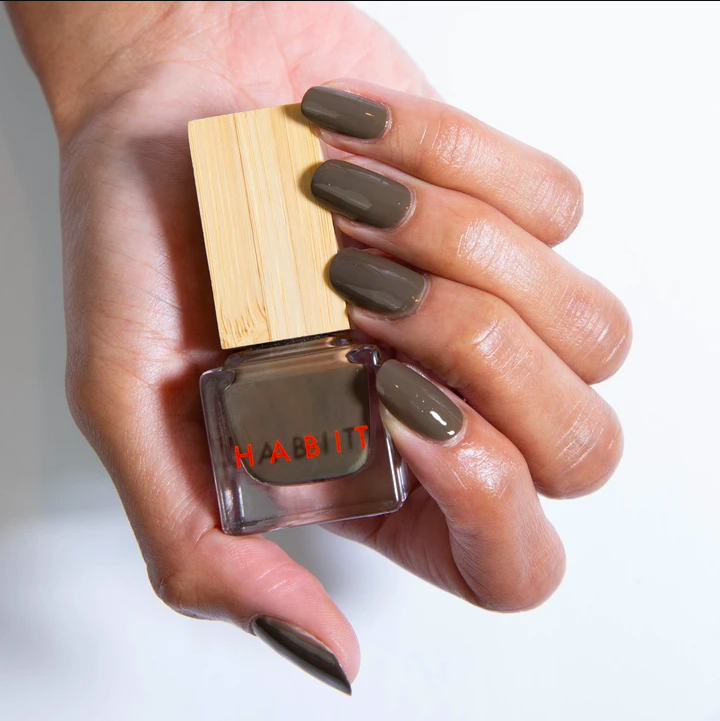
This is the consumer-first point-of-view that Zoe brings to the sustainability space. She didn’t study environmental science and isn’t a climate expert, but what she understands through personal experience is that a more eco-friendly option that doesn’t work in everyday people’s lives isn’t sustainable either.
That’s why Goldune classifies sustainability as a spectrum, taking into account the entire lifecycle of a product instead of creating a false binary between products and materials that are “good” and those that are “bad.” Goldune even goes so far as to include an “End of Life” section on each product page to walk consumers through proper disposal of both the packaging and the item itself, so they can feel informed when deciding what purchases best fit into their life.
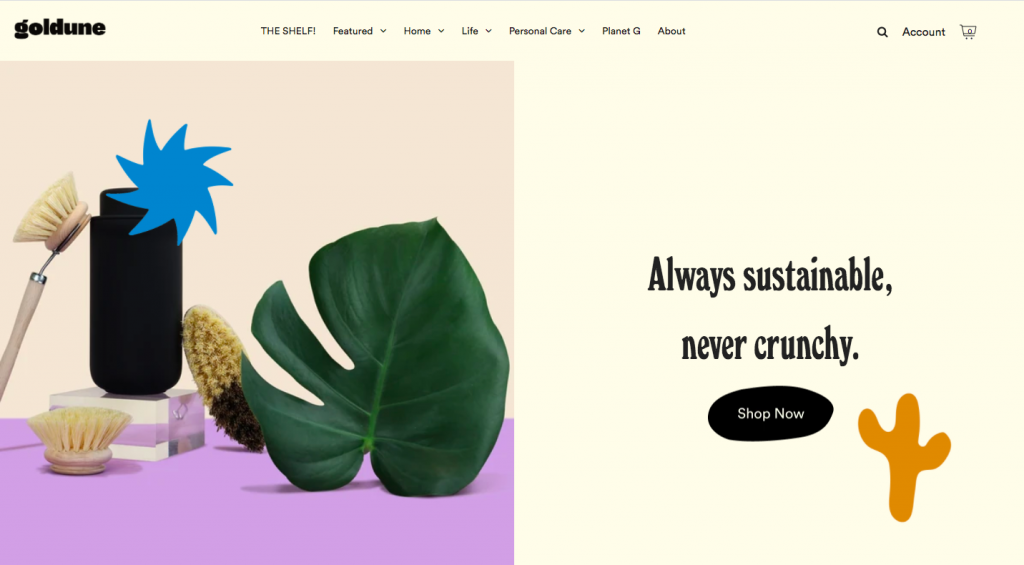
eco-friendly essentials on their website. Image Credit: Goldune
“We want it to be black and white; that’s human nature,” Zoe explained,” but it’s almost impossible to understand the full life cycle and environmental impact of a purchase on an individual level. This is an incredibly nuanced topic with no black and white answers, but I think it comes down to common sense and what works for you.”
Embracing this need for flexibility has fostered a growing Goldune community of curious people wanting to make better choices in viable ways.
Goldune’s welcoming mindset can feel like a far cry from the never-sustainable-enough conversations frequenting social media comment sections. And though accountability is an integral part of the broader discussion, criticizing individuals without abandon risks overlooking the numerous potential barriers that might prevent someone from partaking in a sustainable alternative, such as high associated costs and time-sunk researching.
That’s why Goldune is pouring so much energy into creating useful content across their social platforms and blog, Planet G. From an eco-themed book club and digestible slideshows on complex topics to plainspoken deep-dives and simple sustainable-living tips and tricks, the Goldune ecosystem is an ever-growing resource for a diverse set of environmentally-friendly actions and inspiration.
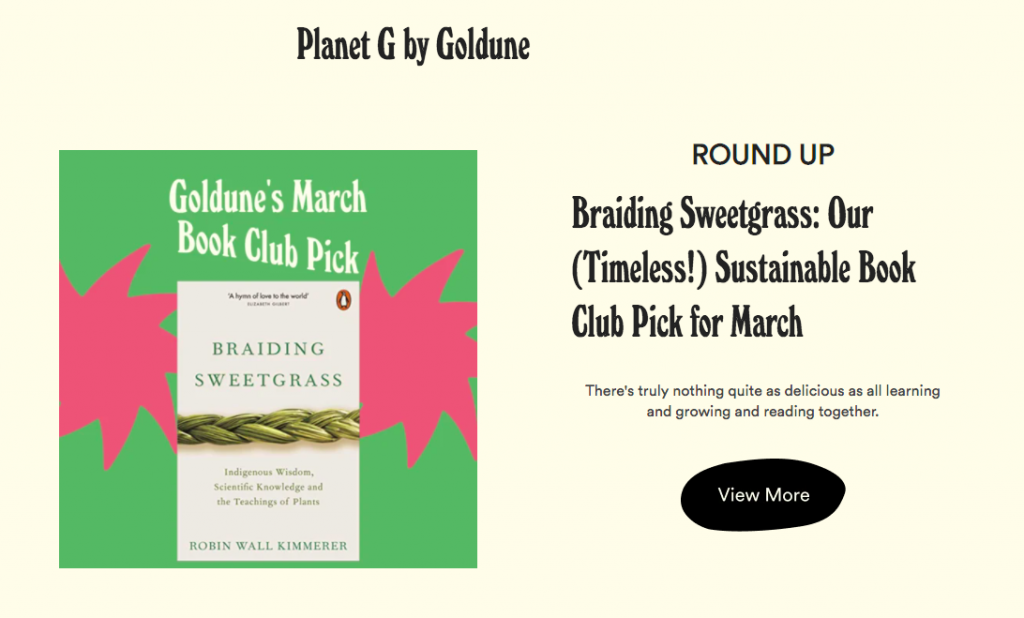
By creating free content and resources, Goldune opens the door for more people to engage with sustainability. For the person who currently can’t afford a pricy linen robe but cares deeply for the environment and wants to take action, Goldune offers a judgment-free zone to engage with environmental activism and learn more about changes they can make in their own life, whether they make a purchase or not.
“It’s inherently a privilege to shop sustainably,” Zoe said, “With Goldune and me, sustainability isn’t a zero-sum game. It’s not like, if you use the plastic straw, you’re going to be excommunicated.”
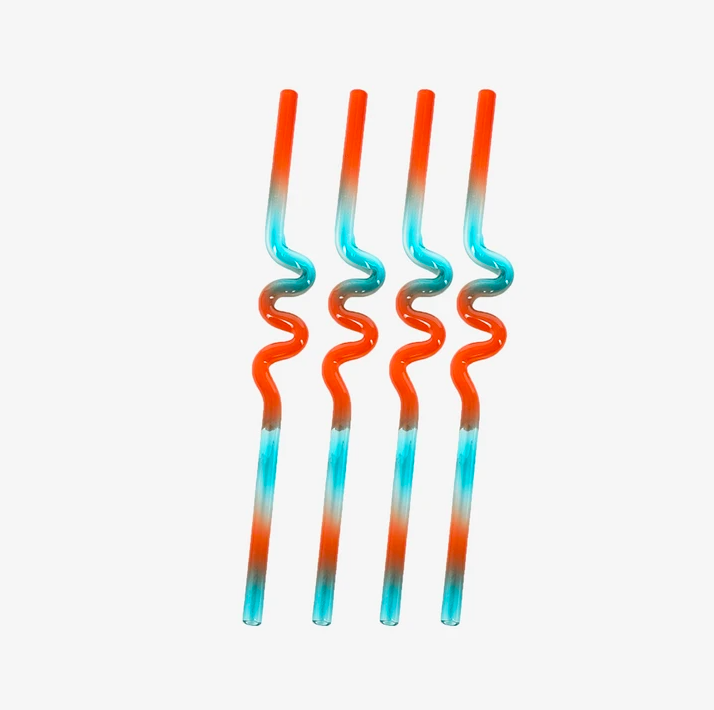
Image Credit: Goldune
But Goldune is building a diverse community in more ways than one.
Zoe describes her sourcing strategy as “very personal.” Deciding to work with a new brand is not a task she takes lightly. But of all the moving parts and factors involved in assessing if a brand belongs in the Goldune marketplace, one thing is certain — diversity is a top priority.
Currently, 70% of the brands on Goldune’s site are helmed by women, and 29% are lead or founded by BIPOC individuals. These stats are published clearly on the Goldune “About” page and are updated quarterly.
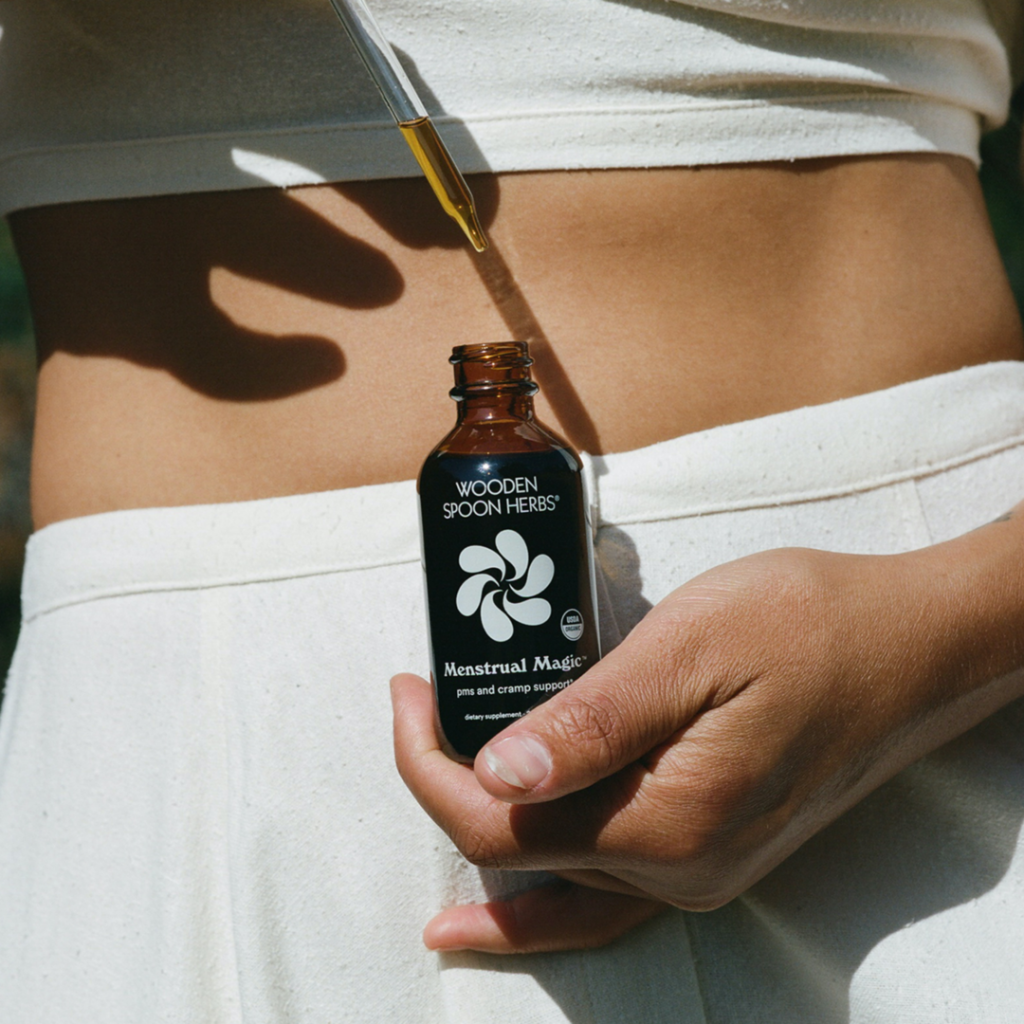
as well as ease muscle spasms and soothe PMS related anxiety.
Image Credit: Goldune
“It’s not an exact science but we will often prioritize a woman or BIPOC-led brand that is creating a great product and wants to be more sustainable but maybe can’t reach the production minimums needed to opt for better packaging right now.” Zoe explained, “The onus is on us to invest in the types of brands we want to see more of and build them up in a way that’s judgment-free.”
And Zoe is keeping true to her word with Goldune’s latest endeavor, a limited-edition online pop-in for sustainable food and beverage brands called The Shelf.
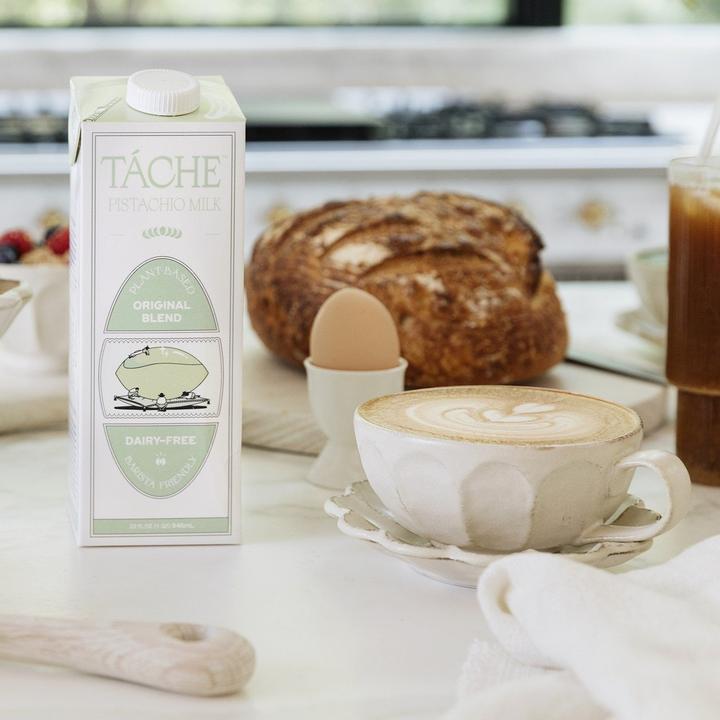
Image Credit: Goldune
Throughout the sourcing process, the Goldune team became inspired by the small food brands going above and beyond not just to be climate neutral, but climate positive. There are loads of online and brick-and-mortar retailers who focus on vegan, gluten-free, or plant-based pantry goods; however, very few highlight sustainability through the lens of regenerative agriculture, upcycling, and carbon sequestering. That’s where The Shelf comes in.
With The Shelf, Goldune is exploring yet another area through which they can draw people into the sustainability conversation and, in the process, uplift small, innovative brands contributing significantly to the sustainability space.
A prime example of just one of these great brands is Moonshot, a Black woman-founded operation creating a tasty grain cracker within a carbon-neutral supply chain employing regenerative agriculture practices.
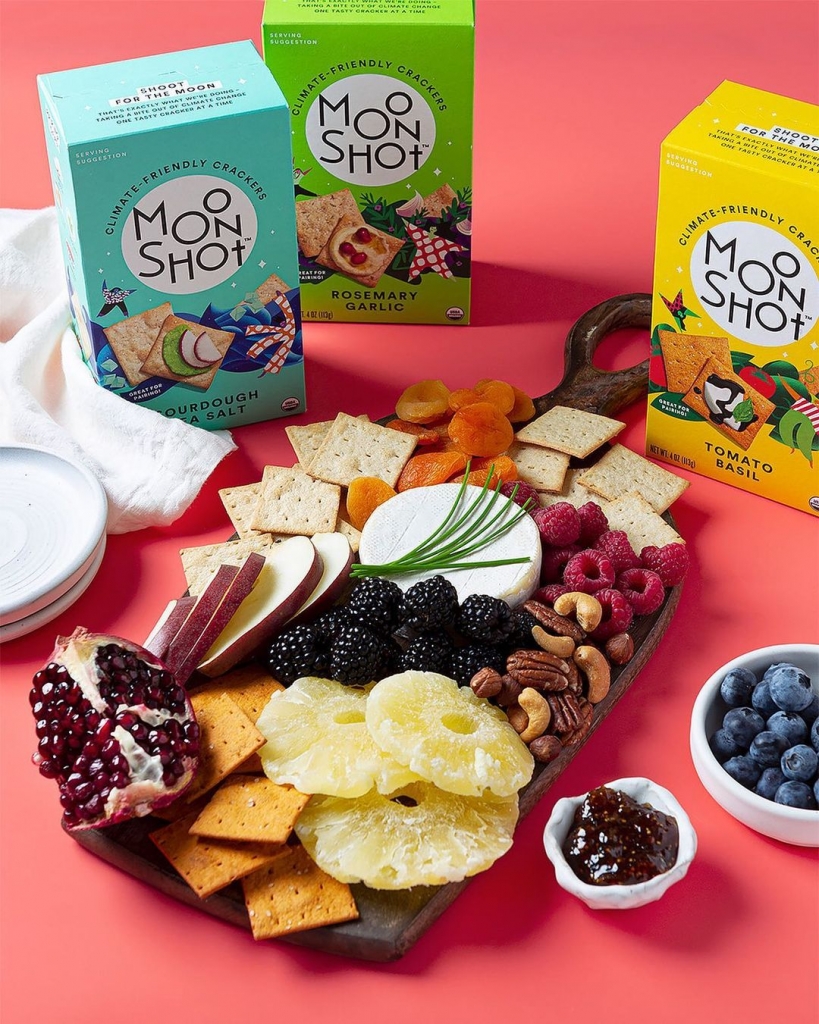
brand, that creates snacks foods that help preserve the planet through
its production and consumption. Image Credit: Moonshot
The hardship of starting a brand amidst the Covid-19 pandemic cannot be overstated. Still, Azora Zoe and Goldune are proving to be a source of great inspiration for what inclusivity can look like when embraced by a brand from its inception and applied in new and exciting ways.
“After living through 2020, we’re not trying to retrofit anything.” Zoe said, reflecting on the ups and downs of her first months in business, “It’s who we are [inclusivity], and it’s part of every decision we make.”